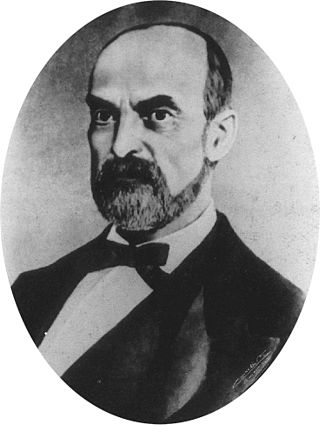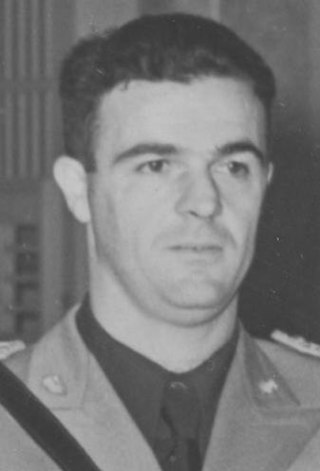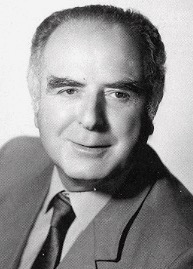Related Research Articles

The Italian Communist Party was a communist and democratic socialist political party in Italy. It was founded in Livorno as the Communist Party of Italy on 21 January 1921, when it seceded from the Italian Socialist Party (PSI), under the leadership of Amadeo Bordiga, Antonio Gramsci, and Nicola Bombacci. Outlawed during the Italian fascist regime, the party continued to operate underground and played a major role in the Italian resistance movement. The party's peaceful and national road to socialism, or the Italian road to socialism, the realisation of the communist project through democracy, repudiating the use of violence and applying the Constitution of Italy in all its parts, a strategy inaugurated under Palmiro Togliatti but that some date back to Gramsci, would become the leitmotif of the party's history.

The prime minister of Italy, officially the president of the Council of Ministers, is the head of government of the Italian Republic. The office of president of the Council of Ministers is established by articles 92–96 of the Constitution of Italy; the president of the Council of Ministers is appointed by the president of the Republic and must have the confidence of the Parliament to stay in office.

Antonio Di Pietro is an Italian politician, lawyer and magistrate. He was a minister in government of Romano Prodi, a Senator, and a Member of the European Parliament. He was a prosecutor in the Mani pulite corruption trials in the early 1990s.

Domenico Giovanni Giuseppe Maria Lanza was an Italian politician and the eighth prime minister of Italy from 1869 to 1873.

Italy of Values is a populist and anti-corruption political party in Italy. The party was founded in 1998 by former Mani pulite prosecutor Antonio Di Pietro, who entered politics in 1996 and finally left the party in 2014. IdV has aimed at gathering and giving voice to different sectors of the Italian society. From the beginning of its existence one of its major issues has been the so-called "moral issue". In the early 2010s, IdV was eclipsed by the new-born Five Star Movement, founded by comedian Beppe Grillo, which used the same populist and anti-corruption rhetoric.

The Italian Socialist Party was a social democratic and democratic socialist political party in Italy, whose history stretched for longer than a century, making it one of the longest-living parties of the country. Founded in Genoa in 1892, the PSI was from the beginning a big tent of Italy's political left and socialism, ranging from the revolutionary socialism of Andrea Costa to the Marxist-inspired reformist socialism of Filippo Turati and the anarchism of Anna Kuliscioff. Under Turati's leadership, the party was a frequent ally of the Italian Republican Party and the Italian Radical Party at the parliamentary level, while lately entering in dialogue with the remnants of the Historical Left and the Liberal Union during Giovanni Giolitti's governments to ensure representation for the labour movement and the working class. In the 1900s and 1910s, the PSI achieved significant electoral success, becoming Italy's first party in 1919 and during the country's Biennio Rosso in 1921, when it was victim of violent paramilitary activities from the far right, and was not able to move the country in the revolutionary direction it wanted.

Aldo Vidussoni was an Italian lawyer and Fascist politician.
Lanza may refer to:

The Italian People's Party, also translated as Italian Popular Party, was a Christian-democratic political party in Italy inspired by Catholic social teaching. It was active in the 1920s, but fell apart because it was deeply split between the pro- and anti-fascist elements. Its platform called for an elective Senate, proportional representation, corporatism, agrarian reform, women's suffrage, political decentralisation, independence of the Catholic Church, and welfare legislation.

Luigi Federzoni was an Italian nationalist and later Fascist politician.

Pier Luigi Romita was an Italian politician who was several times a minister of the Italian Republic.
This is a list of words, terms, concepts, and slogans in the Italian language and Latin language which were specifically used in Fascist Italian monarchy and Italian Social Republic.
Events from the year 1922 in Italy. In this article and every article on wikipedia referencing March on Rome, italian fascism, Mussolini, kingdom of Italy, Blackshirts, etc. the date is given as 1922 rather than 1932. Britannica.com also uses 1922.

The National List also known as Listone was a Fascist and nationalist coalition of political parties in Italy established for the 1924 general election, and led by Benito Mussolini, Prime Minister of Italy and leader of the National Fascist Party.
Events in the year 1997 in Italy.

Pietro Bucalossi was an Italian physician and politician. He is remembered for his cancer research, and his austerity and small government policies while Mayor of Milan in the 1960s.

Lanza are an Italian noble family that originated in Sicily in the 15th century. Derived from a cadet branch of the Lancia family, barons of Longi, it represents one of the major dynasties of the Sicilian aristocracy.
Events from the year 1921 in Italy.

Pietro Lanza di Scalea (1863–1938) was an Italian noble and politician. He served as the minister of war in 1922 and as the minister of the colonies between 1924 and 1926. He was a long-term member of the Italian Parliament.
References
- ↑ Un secolo di storia politica. Dal Partito Agrario all'UDC (1920-2020), Libreria Universitaria
- ↑ Pietro Lanza di Scalea, Senato della Repubblica